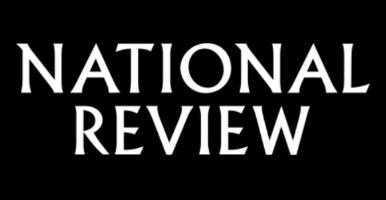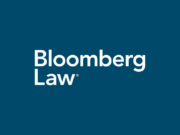Another day, another call for government intervention in free speech on the Internet. President Trump recently took to Twitter to decry supposed censorship of conservatives. He suggested that Google and “others” were censoring conservative voices and burying good news about him in search results. Furthermore, he warned that “this is a very serious situation” that will be “addressed” — perhaps with government action.
The genesis of these tweets is an article from PJ Media. The story reports that 96 percent of Google search results for the word “Trump” returned results from left-leaning news sites. Even though the article admits the results are “not scientific,” the story confirmed the biases of many on the right and instantly gained traction. (In fairness, the author of that article has since expressed opposition to any efforts by government to regulate speech online.)
Lou Dobbs highlighted the findings on his TV show in a segment with pro-Trump social-media personalities Diamond and Silk. The duo have been touted as prime examples of social-media censorship after claiming they were censored by Facebook. Echoing the rhetoric of both Dobbs and the president, White House chief economic adviser Larry Kudlow then stated that the administration is looking into regulating Google.
While claims of liberal bias in the media or Silicon Valley are nothing new, the desire for the government to intervene is alarming.
The supposed justification for regulating big-tech companies comes from the market power they hold. Advocates of government intervention believe that consumers have no real alternatives to sites like Google and Facebook. (Apparently, they’ve never heard of Bing or Yahoo!) As the argument goes, the government must act to make sure that all Americans can speak and be heard on these platforms.
It wasn’t so long ago that Republicans were rightly rejecting these arguments when they were made in support of the Fairness Doctrine.
The Fairness Doctrine was first introduced by the Federal Communications Commission in 1949. It required broadcasters “to afford reasonable opportunity for the discussion of conflicting views on issues of public importance.” In other words, if a radio station aired a conservative view, it would have to provide equal time for an opposing liberal view.
This regulation started as an attempt to make sure both sides of a debate were heard on government-controlled airwaves. But soon after its passage, it became a tool to silence critics and political opponents.
Presidential administrations from Kennedy to Nixon used the Fairness Doctrine to maximum effect. The administration could use the doctrine to demand equal air time any time one of the president’s policies was criticized. This not only allowed the president nearly endless opportunities to express his viewpoint, but took time away from his opposition. Eventually, wary of the burdensome government demands, many stations simply stopped airing political commentary altogether.
As one member of the Johnson administration put it: “Our massive strategy was to use the Fairness Doctrine to challenge and harass right-wing broadcasters and hope that the challenges would be so costly to them that they would be inhibited and decide it was too expensive to continue.”
They were right.
It wasn’t until the Reagan administration that the Fairness Doctrine was finally repealed in 1987. It’s no coincidence that Rush Limbaugh debuted his radio program a year later. The end of the Fairness Doctrine set off an explosion of conservative ideas over radio airwaves. In 1987, just 7 percent of AM radio stations were devoted to talk radio or public-affairs programming. Just seven years later, that number had increased to 28 percent.
The rise of conservative talk radio did not come without backlash. Some Democrats still threaten from time to time to revive the Fairness Doctrine due to the rhetoric directed at Democratic politicians.
Sound familiar?
Today, many on the right seem to want a Fairness Doctrine for the Internet. Creating one would demean one of Reagan’s great achievements and give government yet another tool to crack down on its critics.
While President Trump may not like CNN coverage or Google search results of his name, granting the government the power to control search results is asking for a whole host of unintended consequences. Do Diamond and Silk want the government to mandate that they provide time for opposing views on their YouTube channel? Would Lou Dobbs jump at the idea that his online content be paired with videos promoting an opposing view? Would supporters of President Trump (or the president himself) want a Democratic president to have the power to police the Internet?
Even if a platform did bias their algorithm against conservatives, a company has every right to edit the content on its platform. What’s more, a solution exists outside of government regulation: If Google isn’t giving the results Trump supporters want, they can easily switch to Bing, Yahoo!, or DuckDuckGo in seconds and at no cost.
The freedom and choice the Internet provides have allowed for an explosion of different opinions and content available to people around the world. Empowering the government to provide “balance” is not only impractical, but a mistake that could massively backfire — likely against the very people pushing for it.














